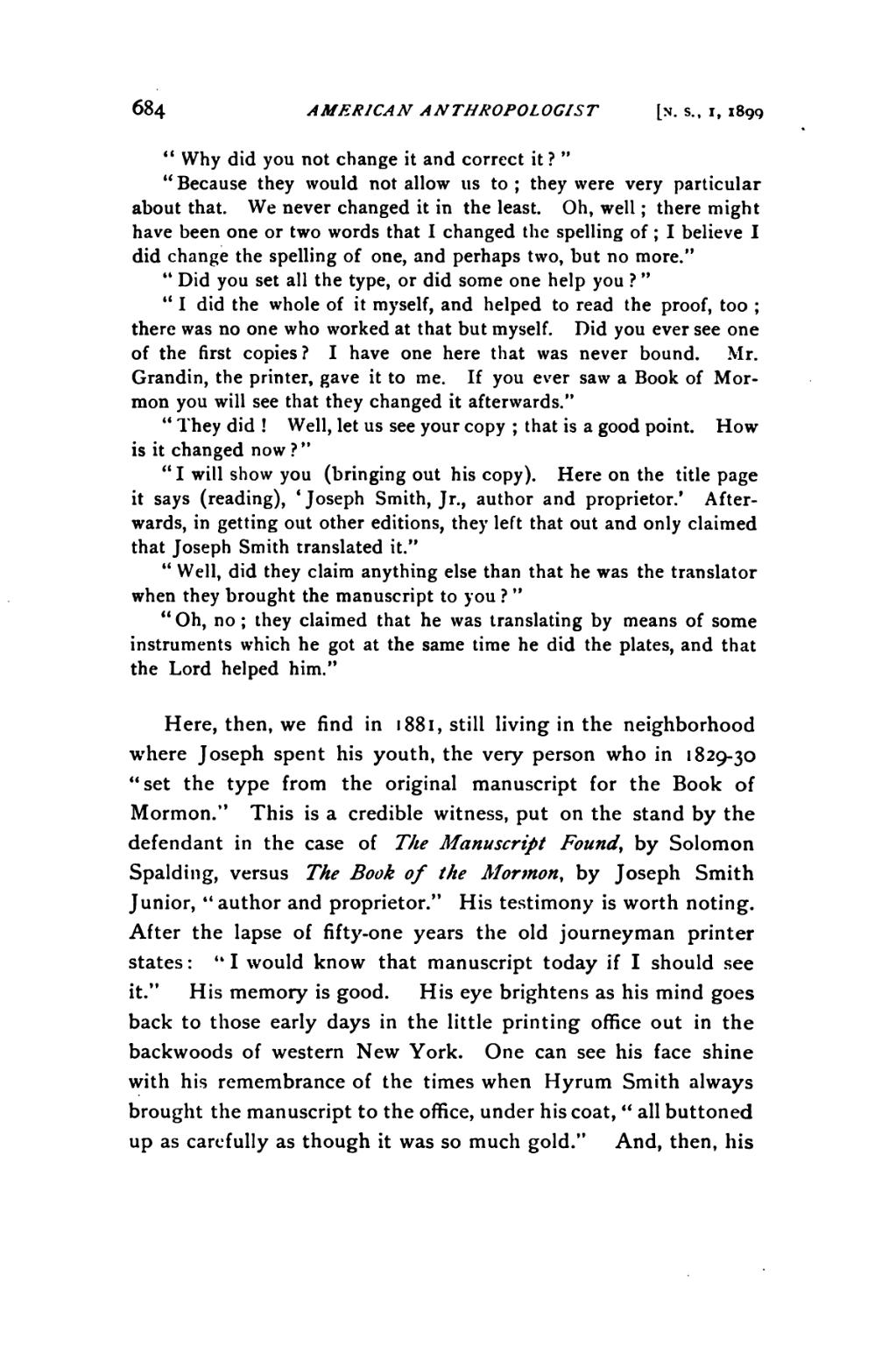684 AMERICAN ANTHROPOLOGIST [n. s., i, 1899
" Why did you not change it and correct it ? "
" Because they would not allow us to ; they were very particular about that. We never changed it in the least. Oh, well ; there might have been one or two words that I changed the spelling of ; I believe I did change the spelling of one, and perhaps two, but no more."
" Did you set all the type, or did some one help you ? "
" I did the whole of it myself, and helped to read the proof, too ; there was no one who worked at that but myself. Did you ever see one of the first copies? I have one here that was never bound. Mr. Grandin, the printer, gave it to me. If you ever saw a Book of Mor- mon you will see that they changed it afterwards."
" They did ! Well, let us see your copy ; that is a good point. How is it changed now ? "
" I will show you (bringing out his copy). Here on the title page it says (reading), 'Joseph Smith, Jr., author and proprietor.' After- wards, in getting out other editions, they left that out and only claimed that Joseph Smith translated it."
" Well, did they claim anything else than that he was the translator when they brought the manuscript to you ? "
" Oh, no ; they claimed that he was translating by means of some instruments which he got at the same time he did the plates, and that the Lord helped him."
Here, then, we find in 1881, still living in the neighborhood where Joseph spent his youth, the very person who in 1829-30 "set the type from the original manuscript for the Book of Mormon." This is a credible witness, put on the stand by the defendant in the case of The Manuscript Found, by Solomon Spalding, versus The Book of the Mormon, by Joseph Smith Junior, " author and proprietor." His testimony is worth noting. After the lapse of fifty-one years the old journeyman printer states: "I would know that manuscript today if I should see it." His memory is good. His eye brightens as his mind goes back to those early days in the little printing office out in the backwoods of western New York. One can see his face shine with his remembrance of the times when Hyrum Smith always brought the manuscript to the office, under his coat, " all buttoned up as carefully as though it was so much gold." And, then, his
�� �
